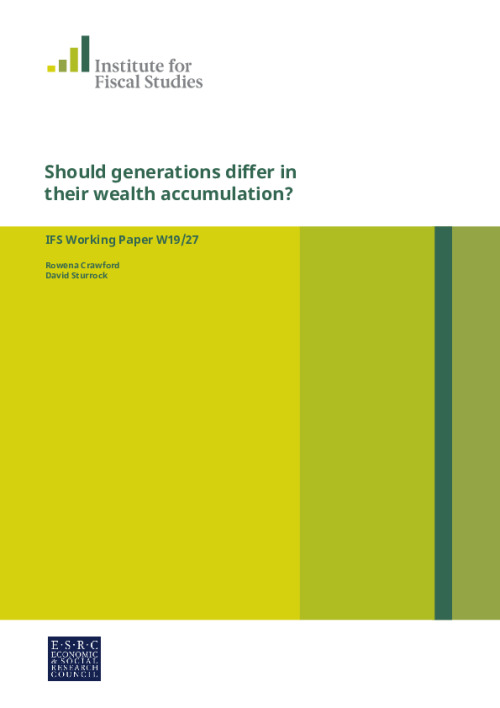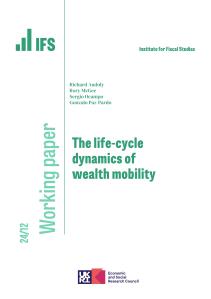In the UK, those born between the 1930s and 1950s have seen generation-on-generation increases in wealth, while those born more recently appear to have accumulated no more wealth than their predecessors had done by the same age. There is debate over the drivers, and therefore implications, of these trends. We use a heterogeneous agents lifecycle model to quantify the potential importance of changing economic and demographic circumstances for the wealth accumulation of generations. Using generation-specific inputs to our model, we examine the impact of differences in earnings, household composition, life expectancy, retirement ages, the tax and benefit system, the state pension system and rates of return on assets. Several of these factors have quantitatively important implications for the level and distribution of wealth, saving rates and replacement rates. We find that changing circumstances alone could generate a picture of stalling wealth accumulation among later generations – one does not need to appeal to differences in preferences between generations. Furthermore, our simulations indicate that given the circumstances they face, later born generations would need higher saving rates even to achieve lower replacement rates in retirement than their predecessors.










